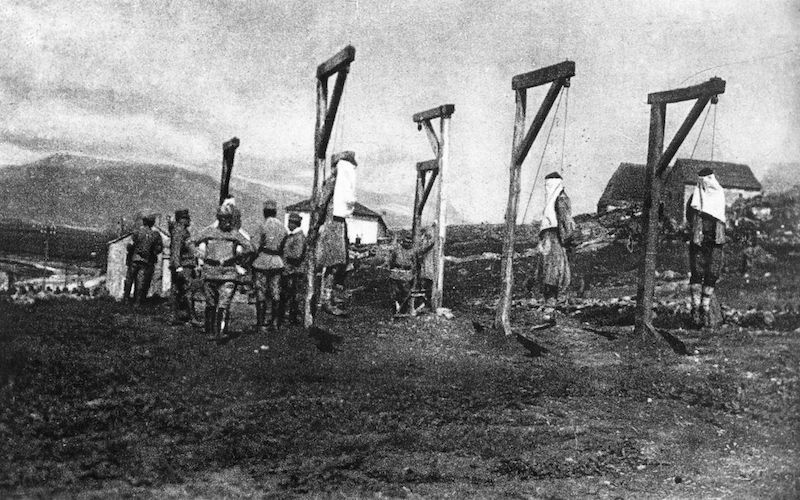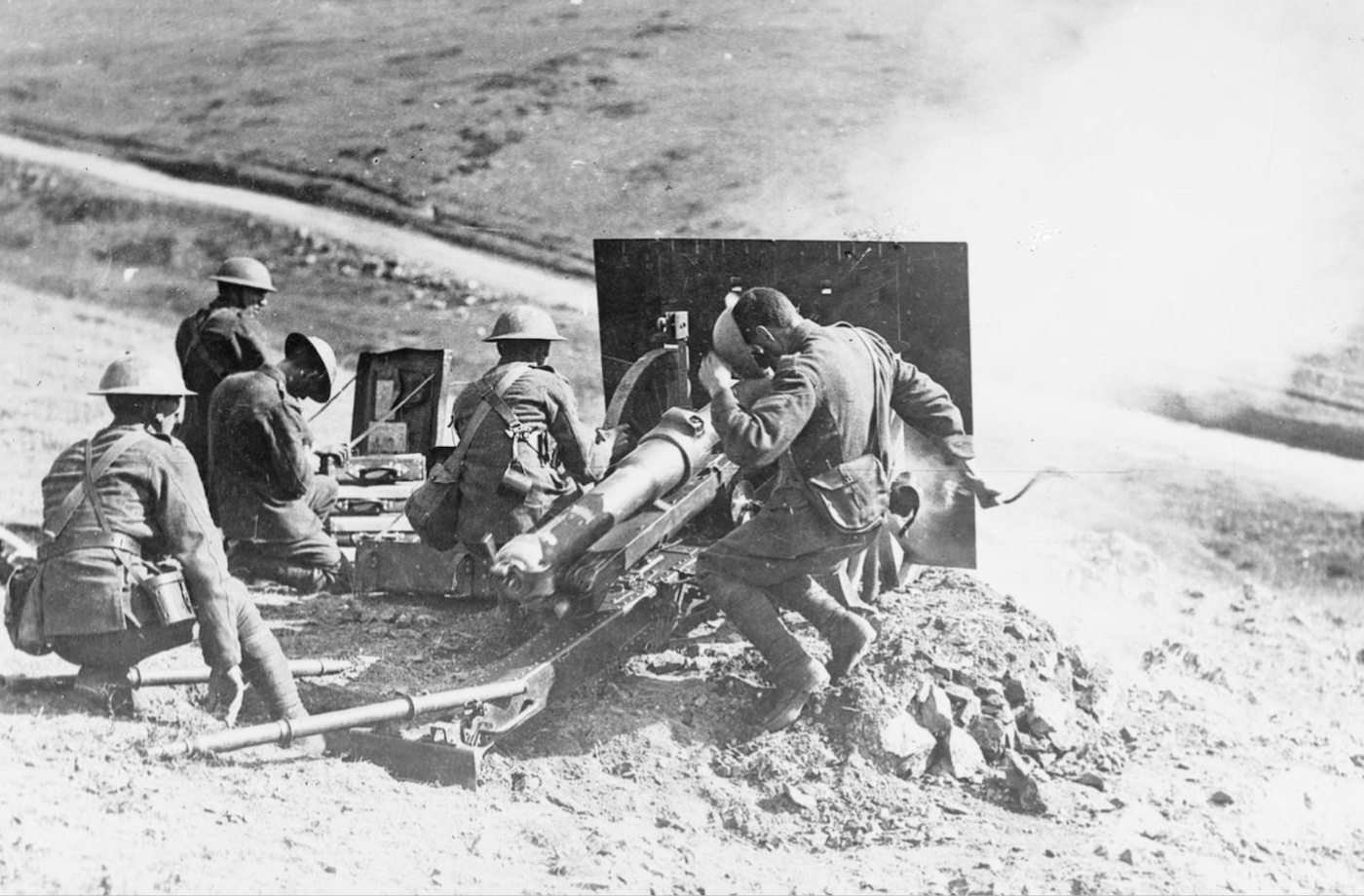
Macedonian Front
Entente forces defeat Bulgaria
21 October 1915 - 30 September 1918
The Macedonian Front, also known as the Salonika Front, began in 1915 when the Entente Powers attempted to aid Serbia, which was under attack from the Central Powers. The expedition arrived too late to be of any aid to the Serbs and eventually the front stabilized along a line from the Adriatic Coast to the Strumma river. The Bulgarians, aided by smaller contingents of other Central Powers forces, faced a multi-national force of the Entente countries. Eventually the Entente launched a decisive offensive which defeated the Bulgarians and liberated Serbia.
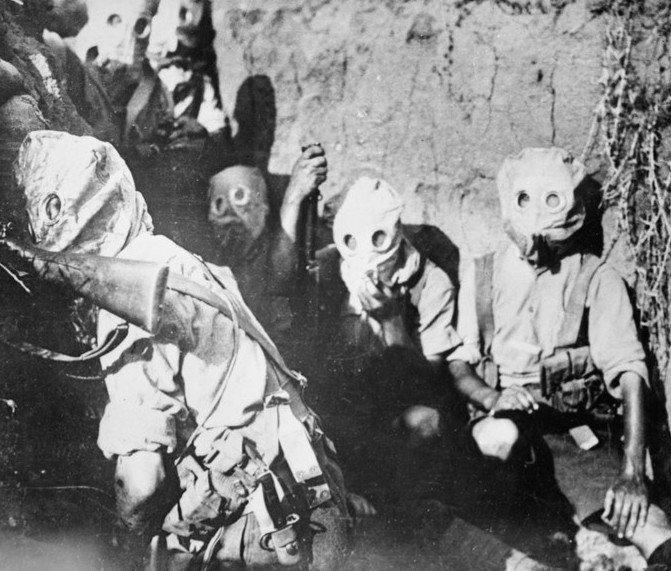
1 of 2
Strategically, the Salonika Front was at best a side show in the grand scheme of things during World War One. The front exerted no pressure at all on the Germans, who maintained a scratch force on the frontier. It drew no enemy force away from the Western Front, brought no aid to the Russians and posed no threat to the Turks.
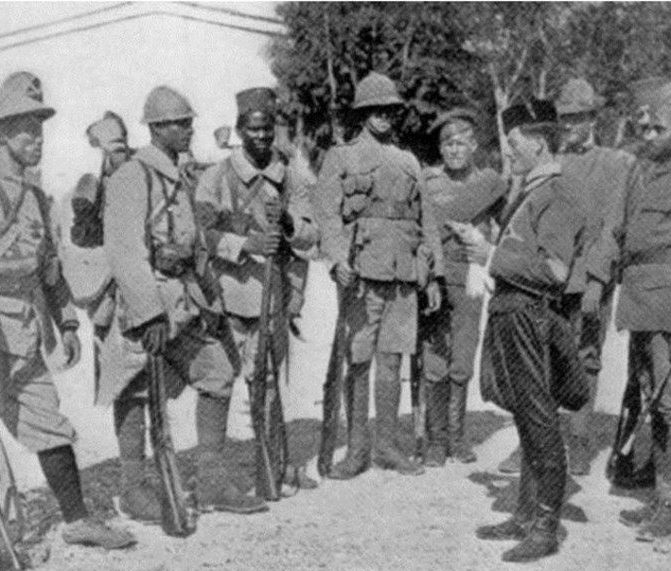
2 of 2
German journalists contemptuously described Salonika in 1915 as ‘the greatest internment camp in the world’. It was worse than that. As numbers grew and malaria rampaged, it became a great military hospital, where casualties from disease sometimes exceeded one hundred percent of the strength of some units present.
By October 1915 it had become apparent to the Entente that Serbia, which was being attacked by Austro-Hungary, Germany and Bulgaria, needed help. The question was, could such a demonstration be arranged? With the Austrian Navy a threat in the Adriatic and with the absence of harbors capable of supporting any serious expeditionary force on the Albanian coast, this left only the Greek port of Salonika as a feasible base for the launch of such a campaign. The Entente forces mobilized, but by the time they reached Salonika it was too late for the Serbians.
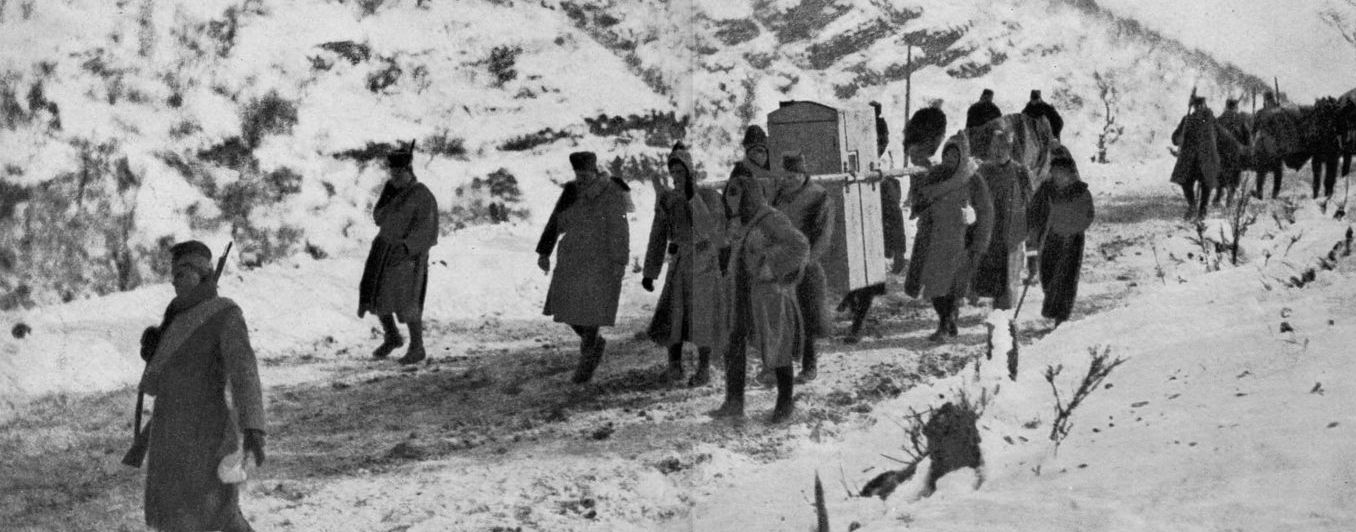
1 of 1
As the last Serbian troops were evacuated from Albania by sea in January 1916, the Entente had missed a golden opportunity in failing to insist that the Greeks honored their treaty obligation to go to Serbia's aid in the event of a Bulgarian invasion. The Serbs had outfought the Austrians, but the German-Bulgarian invasion proved too much. A combined Serbian and Greek army could have deterred Bulgarian ambitions and blocked passage from Germany to Constantinople over the Berlin-Baghdad railway.
- Peter Hart, The Great War: A Combat History of the First World War, Oxford University Press, Oxford, 2013
- Hew Strachan, The First World War: To Arms (Volume I ), Oxford University Press, Oxford, 2001
- Peter Simkins, Geoffrey Jukes, Michael Hickey, Hew Strachan, The First World War: The War to End All Wars, Osprey Publishing. Oxford, 2003
- John Keegan, The First World War, Random House UK Limited, London, 1998






